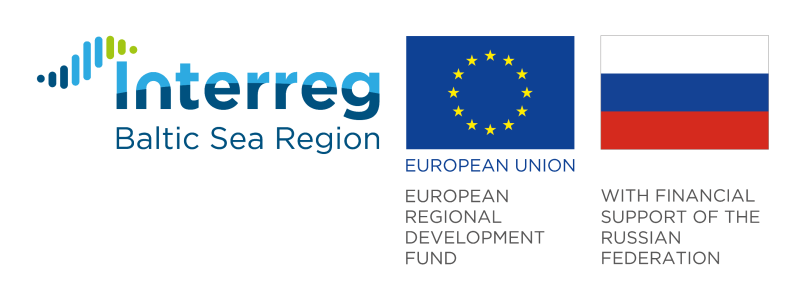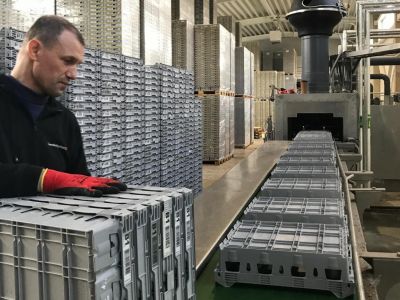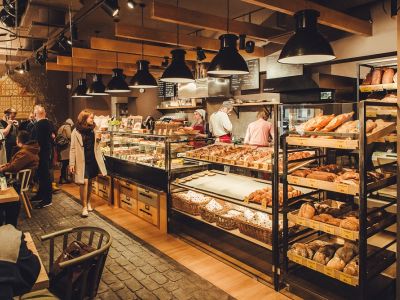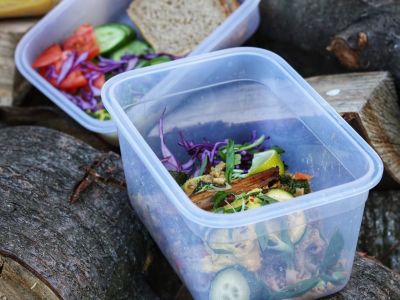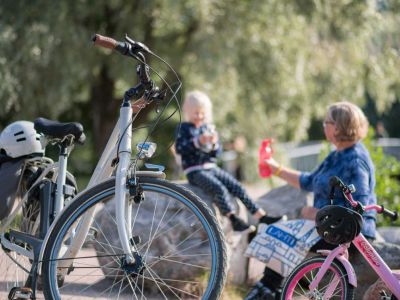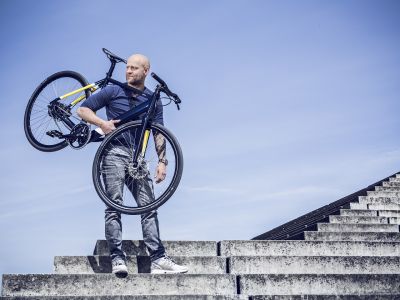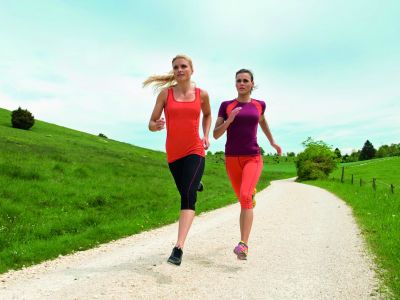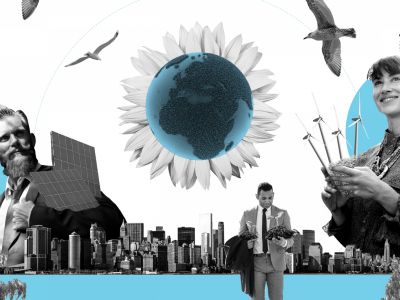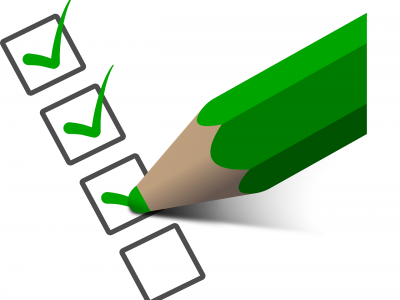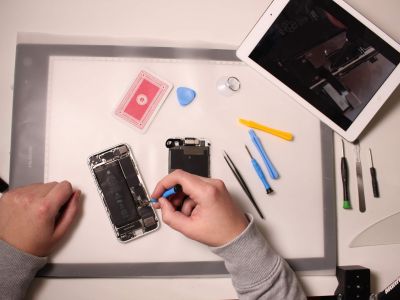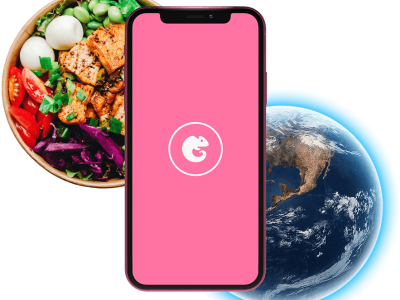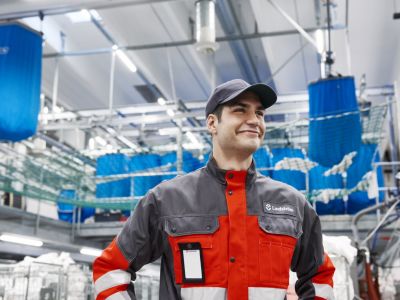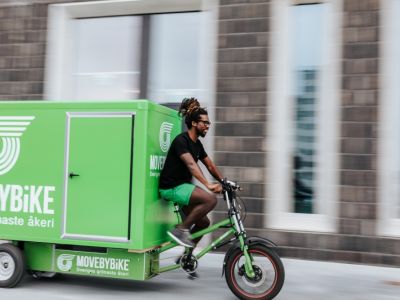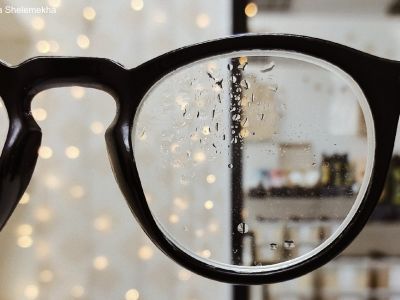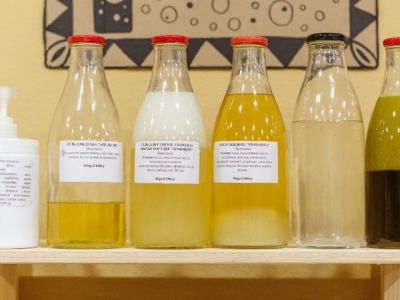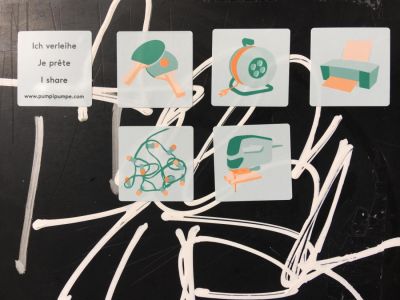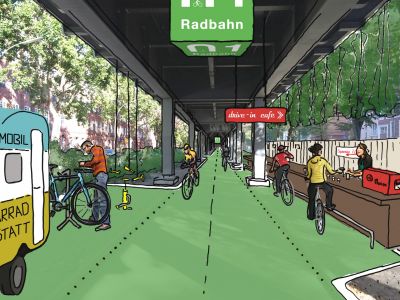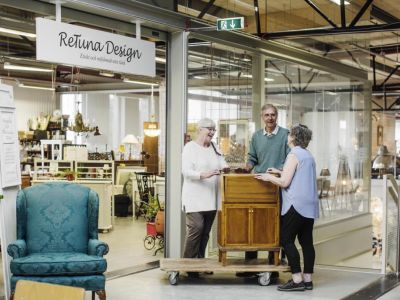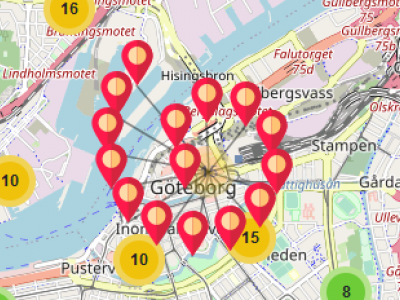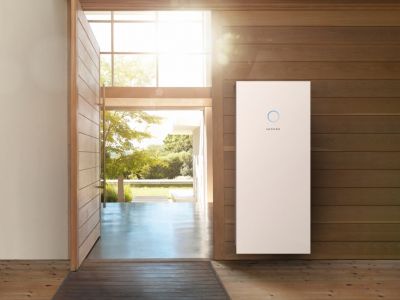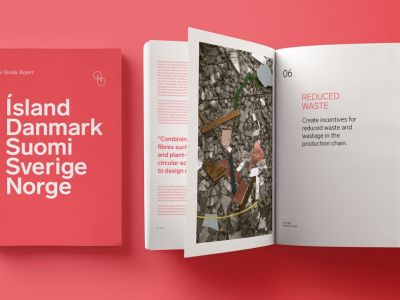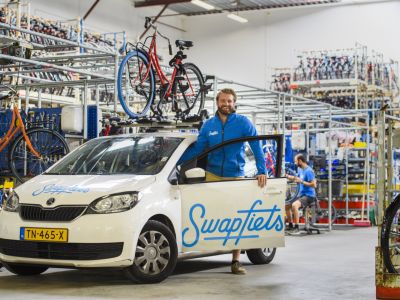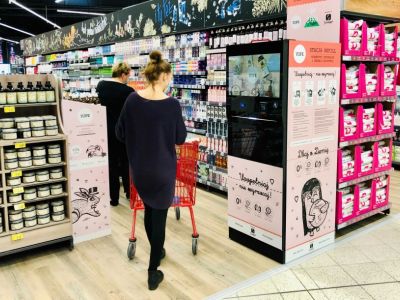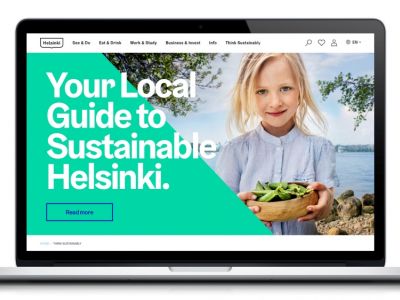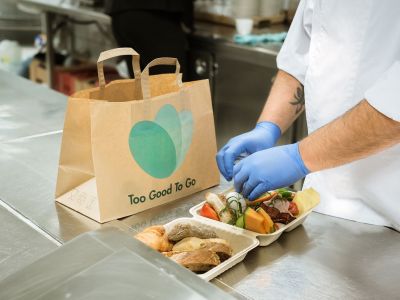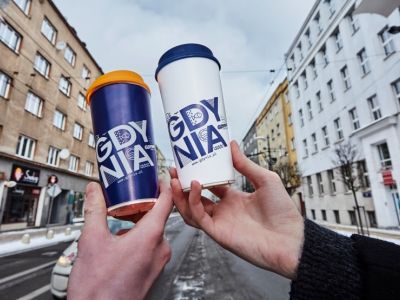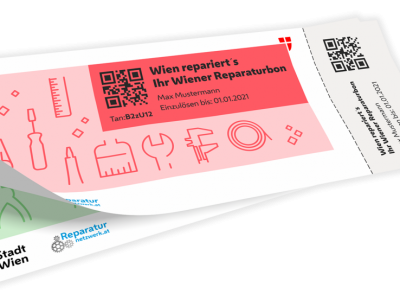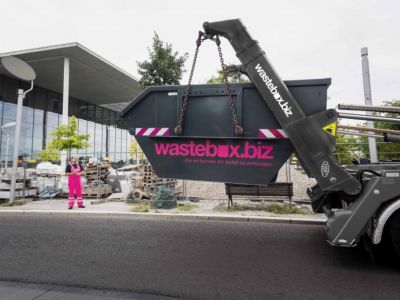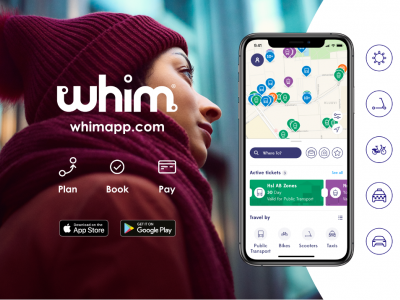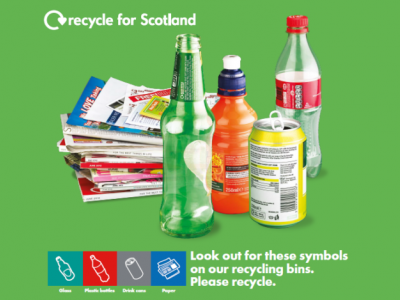![]() Service
Service ![]() Denmark
Denmark ![]() Food & Packaging
Food & Packaging
![]() Go To Website
Go To Website
Picture on top: Too Good To Go
In Germany, around 18 million tonnes of food are thrown away every year according to a WWF study. Next to supermarkets, restaurants and hotels also have many leftovers at the end of the day which they can’t serve again. This is were “TOO GOOD TO GO” comes in.
When an idea meets a social need or offers a solution to a problem, it has the potential to succeed. However, you also need people who just make the idea happen. Food waste is a problem that many people find to be inacceptable. Food-sharing initiatives have emerged and food boards provide meals for those who often lack the financial means for a sufficient and healthy diet. Food rescuers are building networks in cities and communities. All of these people can’t accept any longer that a large amount of food, around 30 percent of the crop of agricultural land, later end up in the bin.
When it comes to restaurants and hotels, people don’t automatically think of food waste. However, these businesses cook meals every day and despite meticulous planning, fully prepared dishes can’t be sold and become left overs. The idea of the ecosocial enterprise Too Good To Go is surprisingly simple and based on an app:
Anybody can use the app to buy leftover food from restaurants, cafés, bakeries, supermarkets and hotels.
The food can then be collected within an hour before closing time, and the packaging is environment-friendly. The company says it still considers itself a start-up because there’s yet so many ideas to be implemented.
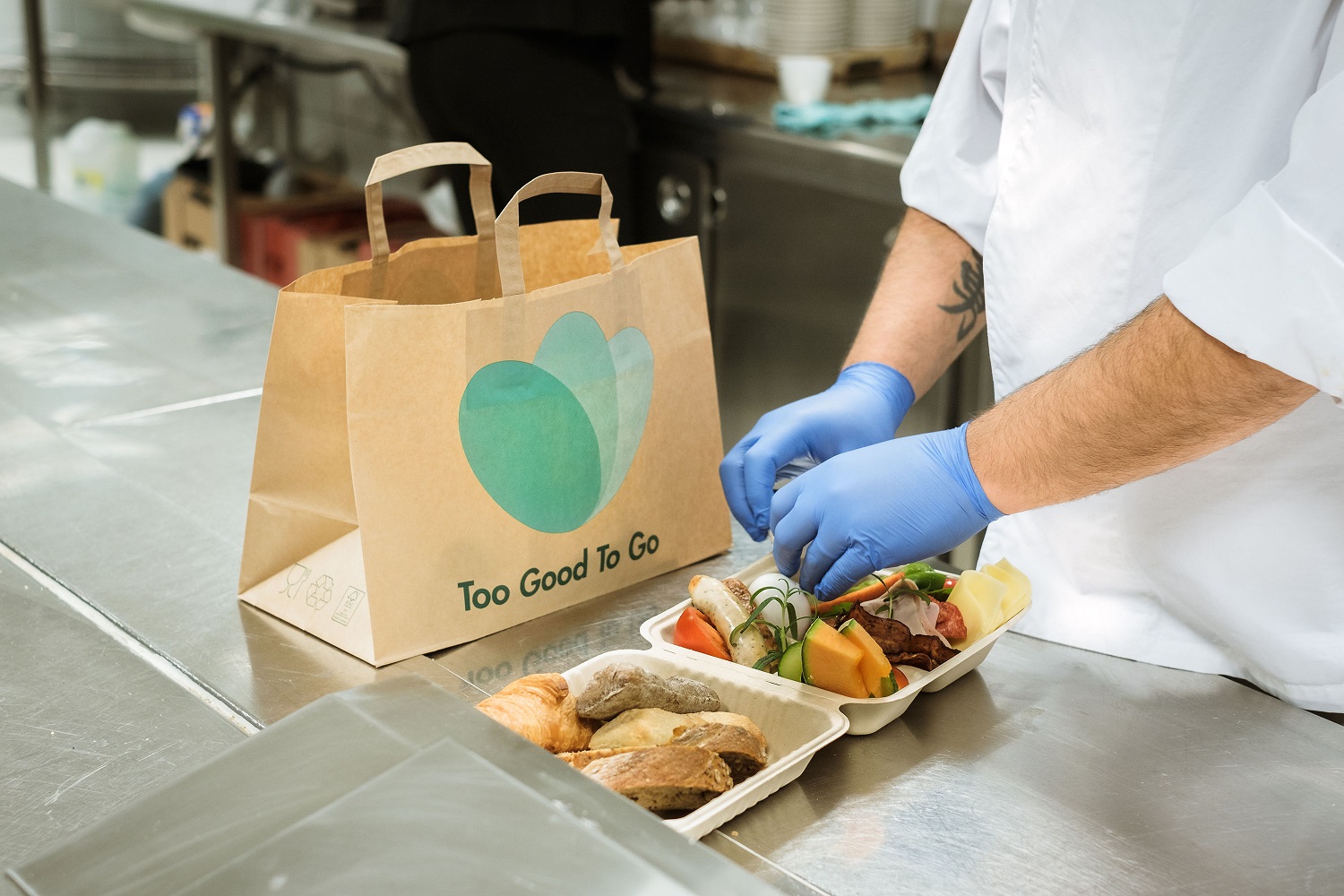
For example, Franziska Lienert joined the company and describes it the following way:
"It might sound like we’re reaching for the stars, but ultimately, our goal is to prevent good food from ending up in the bin completely. And even after this short time we know that this is what businesses like restaurants, grocery shops, hotels and bakeries want as well."
There are many different reasons why businesses join Too Good To Go. Franziska Lienert says that one of the main reasons is a feeling of uneasiness. Wasting food in these times feels unacceptable.
And additionally, but rightly, food disposal costs money.
Unlike other initiatives, the food that is offered through the app isn’t handed out for free.
"A large part of our work consists of gradually getting in touch with everybody who offers food. As soon as a business is on board, we draw up a profile together. We look at how many portions are roughly left over every day, what the cost for one portion is and at what time they can be collected. App development, customer service, marketing and support for the businesses are covered by employees of Too Good To Go", explains Franziska Lienert.
Too Good To Go in 2020 employs 70 people in Germany and 750 people internationally. Which leads us to the company's founding history. In Denmark, a team of five, all in their mid to late 20s and all working in commerce, came up with the idea ...
... developing an app that brings together parties interested in giving and parties interested in receiving food.
Today (in 2020), the app is available in Denmark, Germany, France, Switzerland, Austria, Sweden, Norway, the UK, the Netherlands, Belgium, Spain, Italy, Portugal, Poland and the US.
It is free of charge for customers, partner businesses pay a small annual fee for the services around the app and 1.09 € per portion goes to Too Good To Go. These revenues are used to provide the digital infrastructure for sales, marketing and customer services. Details are well thought out, the food packaging is bio-degradable, consisting of bagasse, a by-product of sugar cane production, and bags are made of recycled paper. Users of the app are also encouraged to bring their own food storage containers, which is even more sustainable.
But still, any good idea has to find its way out into the world. When the German Too Good To Go team applied for the German Ecodesign Award in 2017, they managed to convince the jury and won the prize in the service category. Ever since, the award is displayed on the homepage.
"Being awarded the prize was good for us. We need this kind of publicity, because one group of people needs to know that they can use our app to take care of leftover food, while the other group of people needs to know that this offer is available to them. We were just getting started in Germany and for us, the prize meant both encouragement and recognition. We were also affirmed that we are on the right track from an ecological point of view. It’s really motivating”, says Franziska Lienert.
However, it still is a challenge to extend the service to rural areas.
The company is trying out different approaches here, but simple logistics in the city and short distances for customers are of course clear advantages of the city. Acquiring customers in the countryside is also more complex, however, these challenges won’t make the team back out. After all, Too Good To Go wants to grow – in order to prevent waste. This is what you could call an original concept of growth.
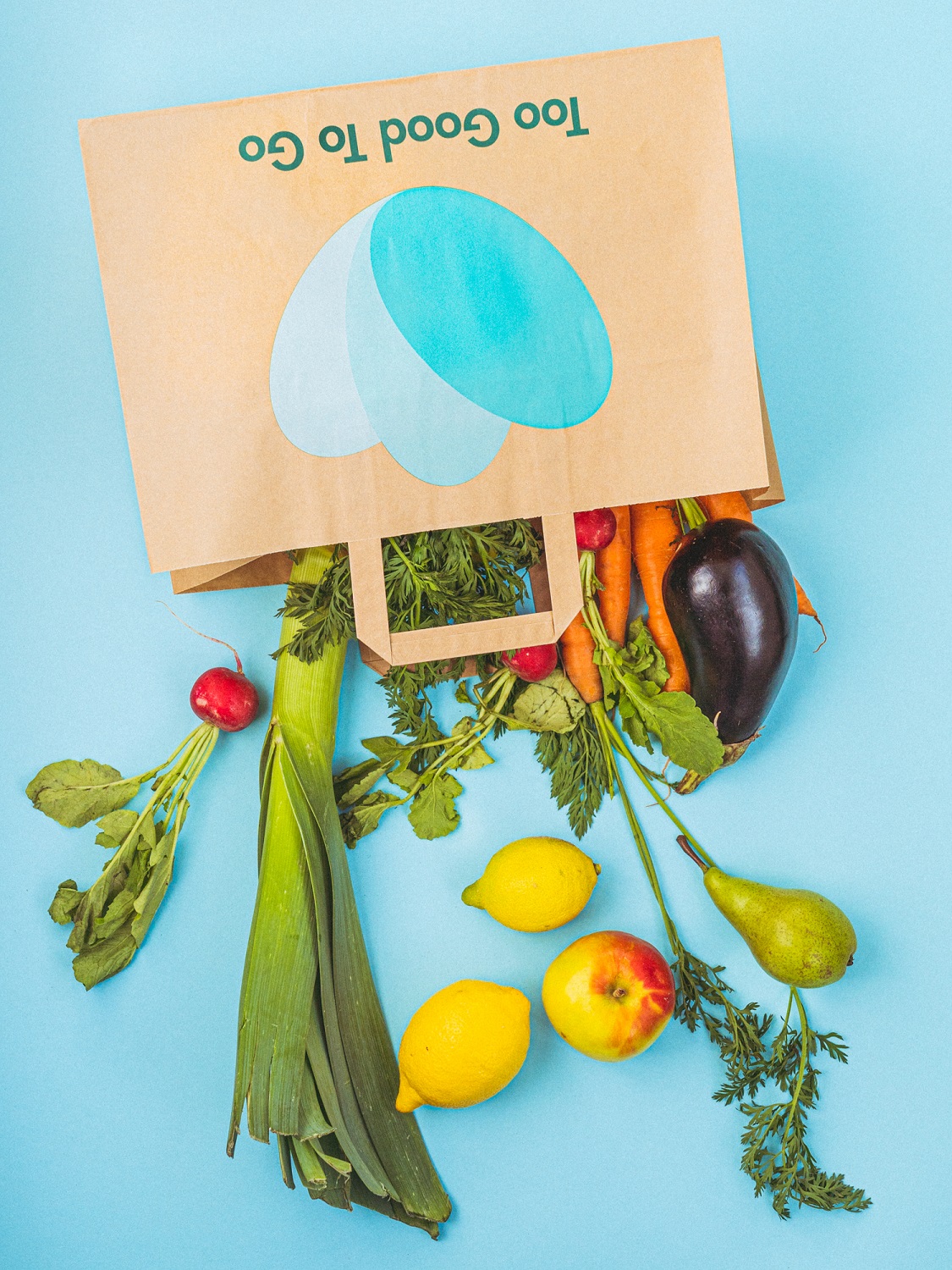
WHO AND WHAT?

Too Good To Go was founded in Denmark in 2015. The app was launched in Germany in 2016 and is operated here by a GmbH (Ltd) based in Berlin.
THE INITIAL PROBLEM
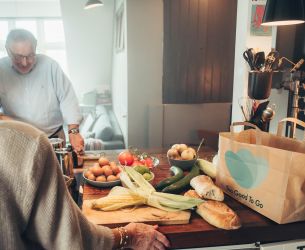
According to the WWF, around 18 million tonnes of food are thrown away every year in Germany, and almost 30 percent of agricultural land has to be used for this purpose.
THE MOTTO
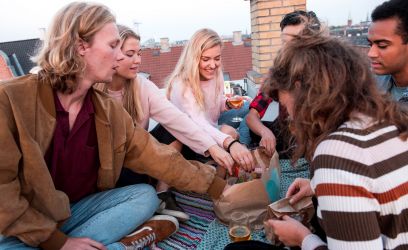
Save food, save money and make the world a better place!
THE IDEA
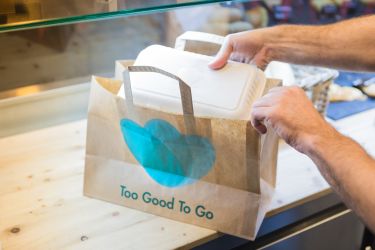
Gastronomic businesses, such as restaurants, cafés, bakeries, can post their dishes and snacks via an app. Customers can find nearby food, pay online and find out in which time frame they can pick up the food.
THE BENEFITS
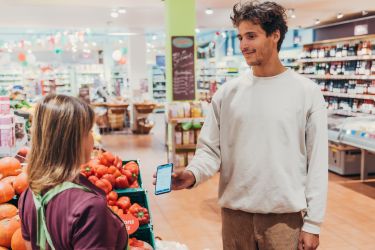
No waste, overproduced or leftover food, ranging from fruit or baked goods to whole meals, is sold at reduced prices, businesses become more sustainable and save on disposal costs.
THE HISTORY

Developed in Denmark in 2015 by five young men, distributed in several European countries. In 2017, a separate Ltd was founded. Around 750 people work in and for the company across Europe and the US in 2021. The app is today world’s largest B2C marketplace for surplus food.
THE AWARD
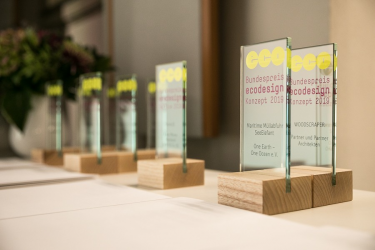
In 2017, "Too Good To Go" received the German Ecodesign Award in the service category. The jury's reason: "For little cost, this app enables users to collect left-over meals from their local area, shortly before the establishments close. Food waste is reduced and both sides benefit. For the jury, this idea was worthy of commendation."
A FEW NUMBERS
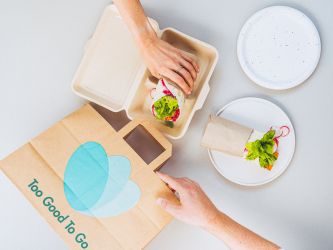
With Too Good To Go, 6.4 million meals have been saved in Germany alone since the beginning. There are already over 5,000 gastronomy partners in around 900 cities and a community of 4.5 million people (in Germany). The app is used in 15 countries, in 2021 already 70,000 gastronomic businesses participated internationally. More than 31 million registered users worldwide, who have collectively saved 45 million meals, thereby saving 147,500 tonnes of CO2 equivalents to date!
THE FUTURE
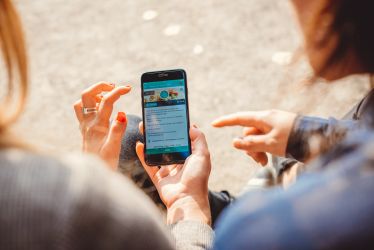
The company is growing, the app is being further developed, and public relations work is being intensified in order to convince more and more businesses of the benefits of the offer.

